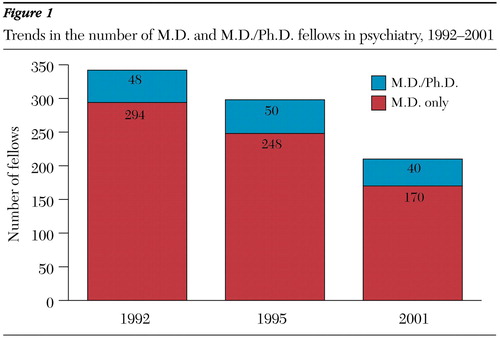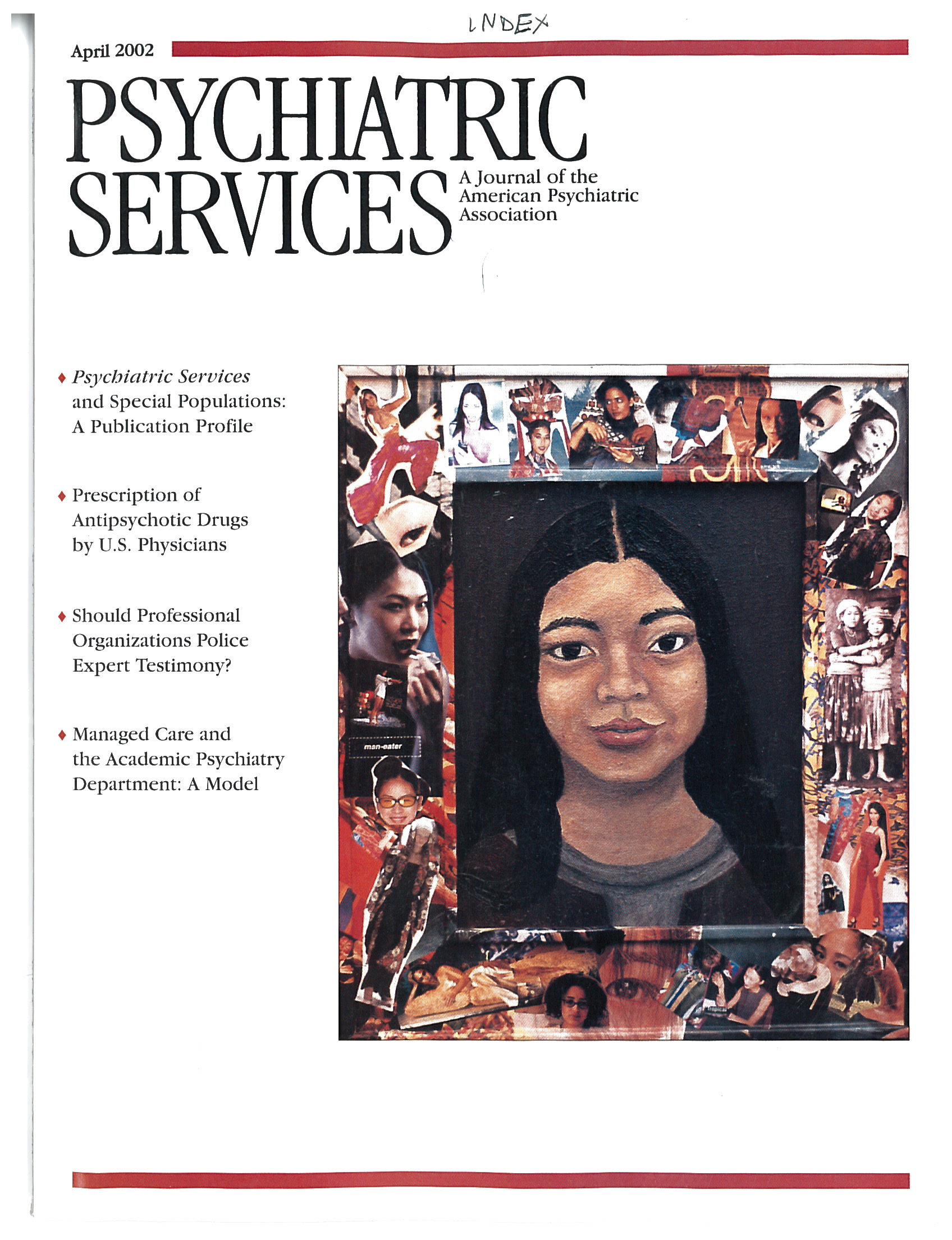Datapoints: Trends in Research Fellowship Opportunities in Psychiatry
There is widespread recognition that the physician-scientist is an endangered species (1,2). Concern about the pipeline of psychiatrist-investigators has been especially acute (3). To assess trends in the number of psychiatrists in research training programs, we examined data collected by the American Psychiatric Association and published in the Directory of Research Fellowship Opportunities in 1992, 1995, and 2001 (4,5). In each of the preceding years, a standard set of procedures was used to survey directors of research training programs and residency training programs and chairs of psychiatry departments for detailed information about their research fellowship programs, including the number of M.D. and M.D./Ph.D. fellows participating in the program.
Figure 1 depicts the number of each type of fellow during the years studied. There were 143, 141, and 104 departmental programs listed in the directory in 1992, 1995, and 2001, respectively. While the number of M.D./Ph.D. fellows dropped somewhat (48, 50, and 40), the number of M.D. research fellows declined dramatically, falling 42.2 percent, from 294 in 1991 to 170 in 2000.
The apparent decline in the number of programs and fellows has occurred despite major efforts to invest in research training and career development programs, and it represents a serious threat to mental health care in the future. The opportunities for patient-oriented research in psychiatry have expanded enormously in basic, clinical, and health services areas. Thus even if the declines revealed by these analyses turn out to be due to reporting artifact, the field faces a huge problem in taking advantage of the burgeoning research opportunities.
An annual output of 50 to 75 psychiatrist-researchers (assuming 100 to 150 fellows and a two-year fellowship period) is simply insufficient. Strategies for a response have been suggested (2,6), but a comprehensive national plan is urgently needed (3).
Acknowledgment
Funding for the survey was provided in part by the American Psychiatric Association and the van Ameringen Foundation.
Dr. Pincus is affiliated with the department of psychiatry of the University of Pittsburgh, Western Psychiatric Institute and Clinic, Suite 279, 3811 O'Hara Street, Pittsburgh, Pennsylvania (e-mail, [email protected]). Dr. Pincus and Ms. Tanielian, who are editors of this column, are also affiliated with the Rand Corporation. Mr. Guerra is with the office of research of the American Psychiatric Association in Washington, D.C.

Figure 1. Trends in the number of MD. and M.D./Ph.D. fellows in psychiatry, 1995-2001
1. Rosenberg LE: Physician scientists: endangered and essential. Science 283:331-332, 1999Crossref, Medline, Google Scholar
2. Report of the AAMC Task Force on Clinical Research: For the Health of the Public: Ensuring the Future of Clinical Research, vol 1. Washington, DC, Association of American Medical Colleges, 2000Google Scholar
3. Kupfer DJ, Hyman SE, Schatzberg AF, et al: Recruiting and retaining future generations of physician scientists in mental health. Archives of General Psychiatry, in pressGoogle Scholar
4. Directory of Research Fellowship Opportunities. Washington, DC, American Psychiatric Association, 1992, 1995Google Scholar
5. Directory of Research Fellowship Opportunities, 2002. Washington, DC, American Psychiatric Institute for Research and Education, 2002Google Scholar
6. Pincus HA: Preserving the psychiatrist-investigator. Academic Psychiatry 25:1516, 2001Google Scholar



